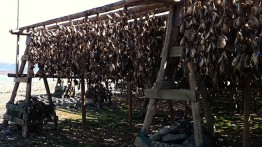Student Lecture Series | Aleksandr Mergold: Un-appealing
Friday, November 13, 2020, 6:30 - 8:30pm

Aleksandr Mergold: Un-appealing
This lecture will be conducted through Zoom. Please register in advance here. Zoom account registration is required.
Coming from a family with two generations of architects, Aleksandr Mergold graduated from Princeton University and Cornell University, receiving the NY chapter AIA and the Charles Goodwin Sands medals.
After working for several large architecture firms such as Perkins Eastman Architects and Swanke Hayden Connell Architects, he joined the office of Pentagram in New York where he spent six years as senior architect, working on a variety of architectural and design projects. Currently, Aleksandr is an assistant professor at Cornell's Department of Architecture.
In 2008, Aleksandr Mergold along with Jason Austin, established architectural and landscape design practice, Austin + Mergold. Aleksandr Mergold is a member of the American Institute of Architects, American Institute of Graphic Arts and is a LEED Accredited Professional.
This event is free and accessible to the public.
View the full Fall 2020 Lectures and Events List.




